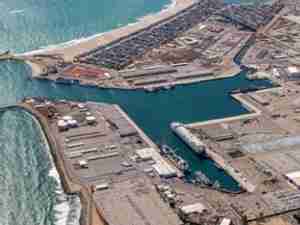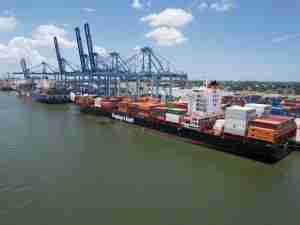Exports of cotton lint through Wilson Sons' Salvador Container Terminal soared 156% between January and November. From the terminal, 1,156 containers were shipped with 28,900 tons of cotton. In November alone, 421 units (10,525 tons) were shipped, the highest monthly volume in this period. Over 2022, 451 containers carrying Brazilian cotton were shipped.
Brazil is currently the world's second largest exporter of cotton, which can be sold in seeds, bran and lint. Cotton lint produced in the Cerrado, located in the Northern-Northeastern Matopiba region of Brazil, was exported via Salvador. Matopiba includes the states of Bahia, Maranhão, Piauí and Tocantins, whose main destination markets are Asia (Pakistan, Bangladesh, China, Indonesia and Vietnam) and Eurasia (Turkey).
Salvador Container Terminal is a business unit of Wilson Sons, a leader in port and maritime logistics in Brazil. Its logistics centre has the infrastructure required to handle cotton cargo, with certification from the Brazilian Cotton Program for Retroport Terminals (ABR-Log). This socio-environmental certification qualifies the operations at the Logistics Centre, confirming the quality of cotton preparation for export, through a process called stuffing, which involves placing the cargo in the containers without any damage or contamination. Issued by the Brazilian Association of Cotton Producers (Abrapa) and by the National Association of Exporters (Anea), the certification is part of Cotton Brazil, an initiative to promote Brazilian fibre on the international market.
Guilherme Dutra, commercial director of Salvador Container Terminal, explains that the logistics centre is just 15 km from the Port of Salvador, and operates as a Special Site for Customs Export Clearance (Redex). “It is an area where exporters have special handling and storage services according to their logistical needs. The cargo goes through customs clearance via remote checking by the competent authority for greater speed and security,” he says.
Salvador Container Terminal has been a provider of solutions for the cotton chain, becoming a viable alternative to the logistical bottlenecks faced by ports in the South and Southeast, offering flexible shipping windows for the same destinations. “In addition to the characteristics mentioned above, which are important to strengthen industry trust, the continuous demand of this important agricultural cargo is also the result of meticulous work carried out by our specialists, dedicated to outlining commercial strategies that add to the specificities that the segment demands,” Guilherme says.






_-_28de80_-_58820516bd428ab3fd376933932d068c43db9a4a_lqip.jpg)



